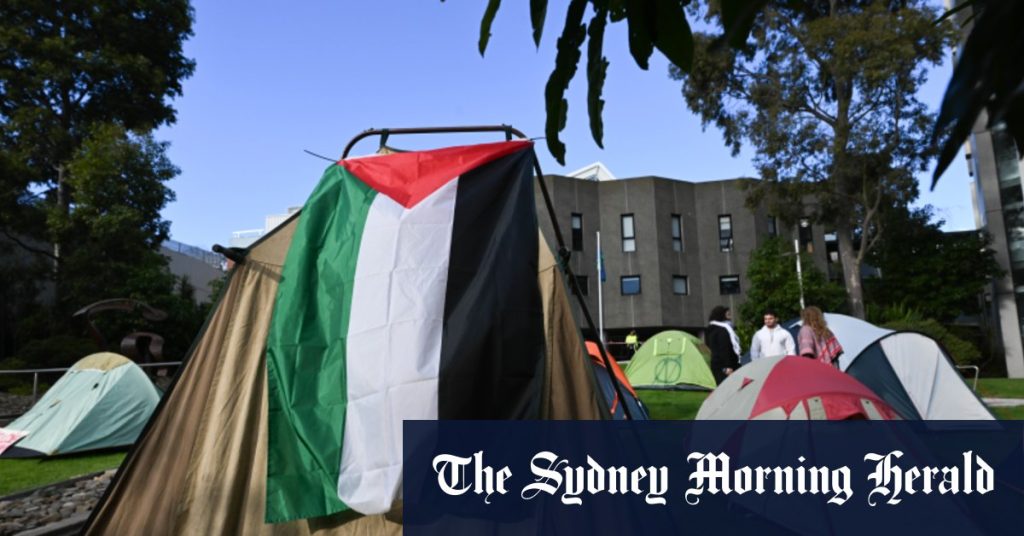Deakin University has taken a strong stance against protesters who do not comply with university rules, with the expectation that state and federal governments will support law enforcement authorities in ensuring compliance. This move comes after a clash between pro-Palestine and pro-Israel supporters at Monash University, prompting the implementation of student identification checks on protesters at the Clayton campus. The University of Melbourne and RMIT are also monitoring protests on their campuses, with the former expressing concern about the impact of ongoing encampments on communal spaces.
The decision by Deakin to order the disbandment of a student camp has sparked criticism from spokesperson Greg Barns of the Australian Lawyers Alliance. Barns believes that such actions may undermine the university’s devotion to freedom of speech, and that heavy-handed enforcement should only be a last resort. He also questions the legality of Deakin’s actions, suggesting that negotiations with protesters may have been a more effective approach. Deakin’s deputy vice chancellor of university services, Kerrie Parker, defended the ban on the grounds that the protesters’ behavior created safety and hygiene risks, as well as hindered the normal use of campus facilities.
Despite efforts to control protests on university campuses, recent incidents of vandalism at media offices and a government official’s office have raised concerns about the escalation of tensions. Police arrested two individuals in connection with the vandalism, which included spraying fake blood on the ABC offices and writing messages accusing the network of enabling genocide. Deputy Premier Ben Carroll condemned the hate-driven acts, emphasizing the importance of ensuring a safe work environment for all staff. Premier Jacinta Allen echoed these sentiments, urging against bringing the conflict in the Middle East to the streets of Melbourne and adding to the grief experienced by communities.
In the wake of these events, the response of universities and law enforcement to protests and acts of vandalism will be closely scrutinized for their adherence to principles of free speech and peaceful assembly. The balance between maintaining a safe and productive campus environment and upholding the right to protest without censorship will likely continue to be a point of contention. The role of government authorities in supporting universities in managing protests and enforcing compliance will also be a key aspect to monitor in ensuring the safety and well-being of all community members. As tensions surrounding international conflicts spill over into local settings, the need for effective communication, negotiation, and de-escalation strategies becomes increasingly vital.


